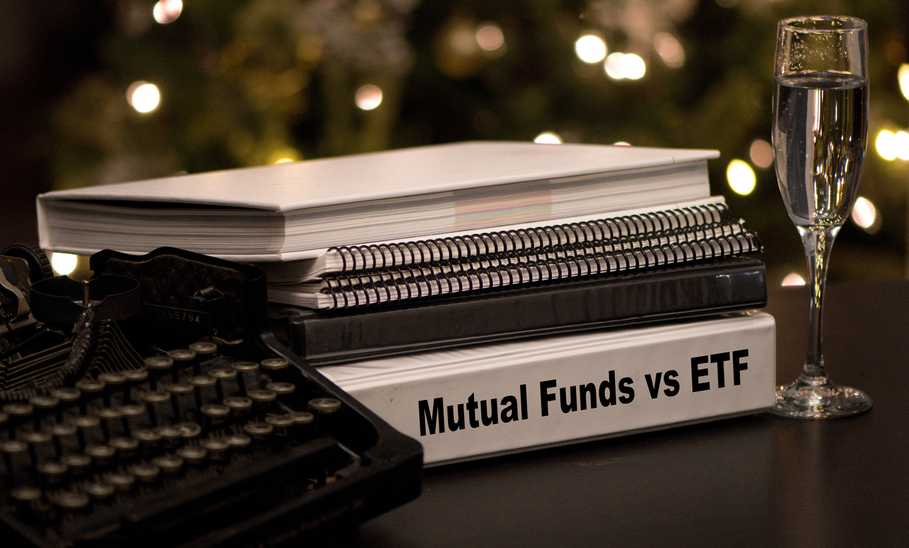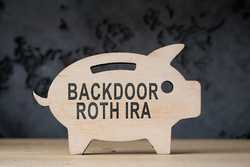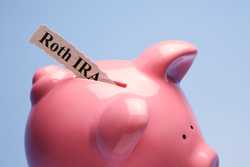ETFS vs. Mutual Funds: How To Choose the Right Investment

Our evaluations and opinions are not influenced by our advertising relationships, but we may earn a commission from our partners’ links. This content is created by TIME Stamped, under TIME’s direction and produced in accordance with TIME’s editorial guidelines and overseen by TIME’s editorial staff. Learn more about it.
Mutual fund, index fund, ETF — WTF? Investors can quickly and easily find themselves overwhelmed by waves of financial jargon and acronyms when they first set off to build a portfolio. Beginning investors are also advised to put their money in a couple of important and beginner-friendly vehicles: ETFs and mutual funds.
Both ETFs and mutual funds have some important traits that make them ideal for investors who are just getting started. But they also have some key differences — differences that are critical to understand and take note of if you hope to decide to make the correct or best-advised decision for your portfolio.
“ETF” is an acronym that stands for exchange-traded fund. ETFs are, in many ways, similar to standard stocks in that they trade on stock markets, and investors can buy shares of them in a taxable brokerage account or retirement account. There are also tons of them on the market, making them an often-preferred choice for newer investors.
In short, an ETF is like a diversified basket of investments, which is very important for some investors. For example, an ETF could include blue-chip stocks, municipal bonds, and exposure to precious metals. Buying a share of that ETF would give investors a little bit of ownership over all of those investments, depending on the fund’s specific makeup.
ETFs are pretty simple to buy. You can buy shares of an ETF just like you would a stock, and there are a lot to choose from. As of the fall of 2022, there were more than 3,000 ETFs listed on the New York Stock Exchange, comprising nearly $6 trillion in assets.
A mutual fund is also a popular investment vehicle that involves several investors pooling their resources to buy an array of securities and assets, often with an overarching goal or objective. If a group of investors was looking to take an aggressive approach to investing and grow their money relatively quickly, they could invest in a mutual fund that takes their pooled money and invests it in growth stocks with the aim to garner big returns quickly. Mutual funds have historically been actively managed, which means the fund pays managers and their staff to pick investments for the fund based on a pre-determined strategy.
But mutual funds can also be index funds, which means the fund tracks an index like the Dow Jones Industrial Average or the Standard and Poor’s 500 index, also known as the S&P 500, which is a market-cap weighted index of the biggest 500 publicly traded companies in the U.S. The first index fund, the Vanguard First Index Investment Trust dating from the mid-1970s, is also a mutual fund.
Here is a rundown of some of the key similarities and differences when discussing ETFs versus mutual funds:
ETFs vs. Mutual Funds: Similarities and Differences
| Similarities | Differences |
|---|---|
Both are pooled investment funds. | Pricing differences. |
Both have associated fees. | How and where they’re purchased. |
ETFs and mutual funds come in a variety of types. | Potential taxation differences. |
Investors incur risk. |
As with any investment decision, there are a number of things to take into consideration when debating whether ETFs versus mutual funds are right for your portfolio.
ETFs may be a good choice for investors who like to take a more active role in managing their portfolio. You can trade ETFs like stocks, so getting in on some market action every now and then may provide a fun and educational way to dip your toes into the market action. Taxes are another thing to keep in mind: ETFs may be more tax-efficient than mutual funds.
If you’re more of a “set it and forget it” type of investor, mutual funds may be a better choice for you. You won’t need to actively trade mutual fund shares like you would ETFs or make many (if any) investment decisions at all in many cases. If you trust your money to professionals who think they can beat the market rather than your own research or instincts, a mutual fund may be the way to go.
As always, you may want to sit down with a financial professional for more guidance. WiserAdvisor will provide you with contacts to nearby financial advisors who can answer your questions.
Investors put their money to work for one reason, generally: to make more money. And one of the more common ways that investments can generate additional returns on top of market appreciation is through dividends and distributions, which is when investors get a cut of the profits that a company generates.
Both ETFs and mutual funds pay out distributions or dividends, but the specifics come down to the individual funds themselves. For instance, many, if not most ETFs pay out cash dividends every quarter, much like a single-company stock would. Mutual funds, on the other hand, might only dole out distributions to fund owners once per year. But keep in mind that there are funds that don’t pay out distributions at all, so if you want to see dividends, you’ll need to do some research to make sure you’re buying into the right funds, be it ETFs or mutual funds.
Also, keep in mind that ETF holders will see dividends or distributions correlated to the size of their holdings. In other words, the more shares of an ETF an investor owns, the bigger their potential quarterly dividend payment. The same is not necessarily true for mutual funds, though it depends on the specific fund.
It’s impossible to say whether mutual funds, by and large, are safer than ETFs, simply because there are so many different funds out there, and some are going to be “safer” than others. What can be said, with confidence, is that both ETFs and mutual funds involve risk for investors. There’s no such thing as a 100% risk-free ETF or mutual fund.
While the structure of ETFs and mutual funds provide some risk advantages because they’re diversified the underlying assets comprising each fund have their own risks too. Concentrated funds, such as an ETF invested heavily in the energy sector, for example, may carry additional risks.
As discussed, there are numerous things to consider and think about when trying to determine whether ETFs or mutual funds are better for your portfolio. Both have some built-in advantages for investors, but there are some key distinctions that may sway you to one or the other, like whether or not you like to do a little active trading.
It’s important to keep in mind, too, that you’re not necessarily relegated to choosing one or the other — you can invest in both! Given that both are diversified investment types, they may be ideally suited to a young or beginner investor’s portfolio. Just remember to do your homework, consider the risks, and if needed, speak with a financial professional for further guidance.
If the company that manages an ETF fails or otherwise liquidates, it must follow a certain procedure which includes notifying shareholders. Typically, the shutdown process involves shareholders getting paid out in cash, but it can be messy.
No, you won’t trigger a taxable event with an ETF until you sell it. At that point, you can calculate any applicable capital gains taxes that may be due. But if you simply hold onto an ETF in your portfolio, it won’t accrue a tax liability. If the ETF pays dividends, you may have to pay taxes on them.
Most financial professionals will probably tell you that any time is a good time to invest in anything, and that includes mutual funds. Though the market has been roiled by economic issues in 2023, a down market presents an opportunity to buy or invest at lower prices. But again, you should consider consulting a professional for guidance before making investing decisions.
The information presented here is created by TIME Stamped and overseen by TIME editorial staff. To learn more, see our About Us page.



